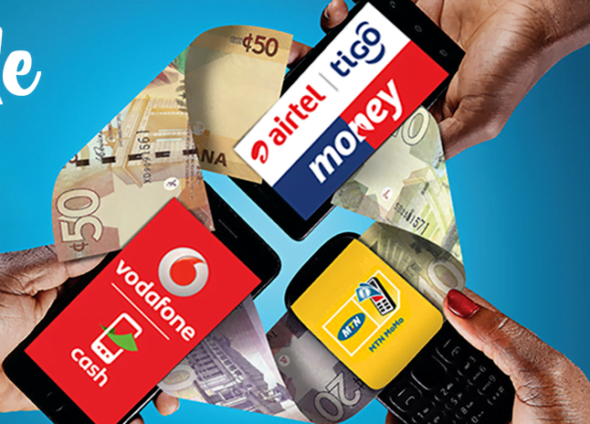Four professional Associations have urged government to reconsider its decision to impose a 1.75 per cent E-Levy on Mobile Money and other electronic transactions.
They said the levy was “too high” and could reverse gains made in ensuring financial inclusivity.
In a discussion on a news programme on Saturday, they said they were not “completely” against the levy and that the rate was “too high for a start” and could stifle interest in digital payment services.
The groups are; the Ghana Association of Bankers (GAB), Association of Ghana Industries (AGI), Ghana Hotels Association, and the University Teachers Association of Ghana (UTAG).
The E-Levy, which was announced by the Finance Minister during the 2022 Budget presentation in Parliament on Wednesday, imposes a 1.75 per cent tax on mobile money and other electronic (E) transactions that exceed ¢100 per customer per day.
Government said it aimed at growing domestic revenue by 44 per cent next year and projected the E-Levy to accrue about ¢6.5 billion next year.
However, the Chief Executive Officer (CEO) of the Ghana Association of Bankers, John Awuah, said the 1.75 per cent rate was too high and that government should have adopted a progressive approach.
“Even if government decides in taking action in levying electronic transactions such as MoMo, the 1.75 per cent start point is too high.
“Perhaps a progressive entry into that territory would have been more formidable, and it will give us an opportunity to assess consumer reactions to levies on MoMo platforms,” he said.
CEO of AGI, Mr Seth Twum Akwaboah, said the levy had the potential to plummet the growth and expansion of the country’s digital financial market.
He said the 100 cedis threshold set by the government “is too low” and called for an upward review.
National President of the UTAG, Prof. Solomon Nunoo, said though it supported efforts by government to expand the tax base to shore up revenue, “We need to ensure that people do not become worse off.”
“In the first place, when you send mobile money, you are charged 1 per cent by the service provider. But now we are going to have an extra 1.75 per cent. I believe my people are going to be worse-off because they have to, now pay some of these extra charges,” he said.
Mr Edward Ackah-Nyamike, the President of the Hotels Association, said the hotel industry was already saddled with levies and expressed concern that any extra charges that affected the people’s finances had the potential to affect patronage of its services.
Dr Theophilus Acheampong, an Economic and Political Risk Analyst, called for a reduction of the proposed 1.75 per cent rate to 0.5 per cent and an increment of the ¢100 threshold to ¢170.
That, he said, would help mitigate any negative impact that the levy would have on the digital payment sector.
“We should also exclude certain services such as payment for essential services such as water, electricity, and bank-to-bank transfers,” he added.
Mr John Abdulai Jinapor, Member of Parliament for Yapei/Kusawgu, accused the Government of failing to consider the plight of the citizenry before introducing the levy, emphasising that “taxes ought to be progressive and not regressive.”
Deputy Minister of Finance, Dr John Kumah, welcomed the input from the Associations and said the Government was open to proposals aimed at improving its revenue mobilisation efforts.
He said government consulted widely before arriving at the 1.75 per cent levy and assured that revenue generated from the levy would be used to provide critical infrastructure and essential interventions for the people.
Source: myjoyonline.com


